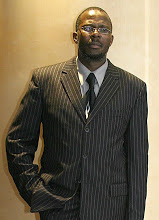INDEPENDENT-ON-SATURDAY 08 August 2002
NKONZO MQADI
{Speaker's Corner}
THIS week South Africa is glorifying the achievements of its womenfolk.
How has the country treated its women, are we advancing their cause?
Who can deny that even the once mighty apartheid regime was shaken with fear by the power possessed by the Imbokodo (women) against any form of discrimination.
Let's reflect on the role played by women during the fight against apartheid and the strides they are making in the post-apartheid era.
In doing so, we must be mindful of the poor rural women, the majority of whom are illiterate and unemployed, yet they bring life to their households. These unsung heroines must be saluted for keeping the home fires burning.
Has South Africa taken any major strides towards addressing gender equality in institutions such as parliament and the corporate world and improving the status of women?
Out of the 490 seats in the national parliament, 136 seats are held by women.
Leading South African woman Naledi Pandor, chairman of the National Council of Provinces, is of the view that the country has done a lot in bringing women into government.
"South Africa has been very successful in attracting women to elected office, we have thus achieved step one," Pandor said while addressing a Women's Empowerment Unit in Durban last year.
From the political domain, in the private sector, education, sport, arts and in the print and electronic media women have made headway and are successful.
To mention a few from this province; Speaker in Parliament Frene Ginwala, Minister of Mineral and Energy Affairs Phumzile Mlambo-Ngcuka, Foreign Affairs Minister Nkosazana Dlamini-Zuma, Minister of Land Affairs Thoko Msani Didiza, Health Minister Manto Shabalala-Msimang and Deputy Minister of Defence Nozizwe Madlala-Routledge.
The Kwazulu-Natal Local Government Association is in the capable hands of director Makhosi Khoza.
In the Ethekwini Unicity, the Speaker is Nomusa Dube and the Council has Ntokozo Mkhize as its legal advisor.
Khanyi Dhlomo-Mkhize, the editor of True Love, has turned the magazine into one of the most read women's magazines.
Peggy Nkonyeni, the KwaZulu-Natal provincial Women Caucus chairman alludes that there is need for improvement in women representation because there is not a single female minister in the provincial cabinet.
In 1954 a non-racial and non-aligned women's movement, the Federation of South African Women, was formed. This federation brought together women from every segment of society to draw up a women's charter.
Who can dare forget the watershed of August 9, 1956 when Lillian Ngoyi, Helen Suzman, and others congregated outside the Union Building in Pretoria in a protest march.
The slogan "Strydom, wathinta abefazi, wathinta imbokodo," (Strydom you have tampered with the women, you have dislodged a boulder, it will crush you) reverberated and mobilised women throughout the country
As women constitute the majority of the population, their numbers also played a vital role at the Convention for a Democratic South Africa (Codesa) talks.
Every compatriot must honour all those women who ensured that our country has one of the most progressive constitutions in the world.
As South Africa celebrates constitutional democracy, the exploitation of our mothers and sisters, calls for a concerted mobilisation against sexual abuse, harassment, rape, promotion of HIV-Aids awareness, and equal representation.
□ Nkonzo Mqadi is a Durban-based freelance writer.
Monday, August 3, 2009
Subscribe to:
Post Comments (Atom)



No comments:
Post a Comment